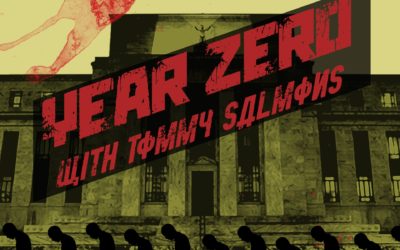The New York Times has published a series of articles by Nicholas Casey on the state of Venezuela, the very recently rich oil country that is today destitute and with a population suffering starvation, riots and kidnappings, and outright chaos. The articles include plenty of important observations from the everyday life in the post-Chávez nation and pictures documenting how the suffering population survive against the odds.
In a recent article, “No Food, No Medicine, No Respite: A Starving Boy’s Death in Venezuela” published on Christmas Day, Casey portrays the great suffering of a mother losing her second-born son scavenging for food and then not getting the health care needed. It is a heartbreaking report of sadness, hopelessness, and poverty. Undoubtedly, many readers will empathize strongly with the people portrayed in these articles.
Readers will wish to point fingers, put blame on someone or something for this situation. After all, Venezuela went from rich oil country with plenty of hope for the future to what the NYT refers to as “economic crisis” and inflation topping 700%. But we’re left without information on what went wrong or whom to blame. After all, Chávez’s egalitarian social policies were promising, modern and progressive, weren’t they?
NYT’s reporting is limited to pointing out what’s wrong: poverty, crime, starvation, “scarcity.” Casey’s article is “the story of a boy with no food, who had gone searching for wild roots to eat but ended up poisoning himself instead” – and he couldn’t be saved because “the hospital had lacked the simplest supplies needed to save him.” Indeed, it had been a while since the hospital “ran out of basic supplies.”
In Venezuela, “Doctors have prepared to operate on bloody tables because they did not have enough water to clean them.” A sad if not horrific fact.
There’s also the couple that “survive on two salaries that have depreciated to the equivalent of $2.19 a day,” which is another statement that should sadden readers. But these facts actually provides no clue to the real problems faced by Venezuelans. The clues are to be found in (or rather, hidden by) other statements intended to make us feel bad.
For instance, as a Venezuelan is quoted saying, “There are no more shipments [of food] now.” Or the father about his son, stating that “We can barely find diapers or milk for José Antonio.” These are not statements of lacking purchasing power, but of non-existing supply. Why are there no supplies for hospitals, no food to buy in markets?
Well, we’re told that there are no black beans in the whole country, because “Few producers make them anymore for the fixed government price.”
The terrible situation is not due to “scarcity” or lack of resources. That is the symptom, not the cause. The source of the suffering, and consequently the responsibility for it, lies with government officials enacting and enforcing policies that contradict economic reality – that violate economic law. This is a part of the story that the NYT does not tell. It is not false news, because the facts are (probably) correct. But it is incomplete, if not severely lacking. Does that make it “fake”?





